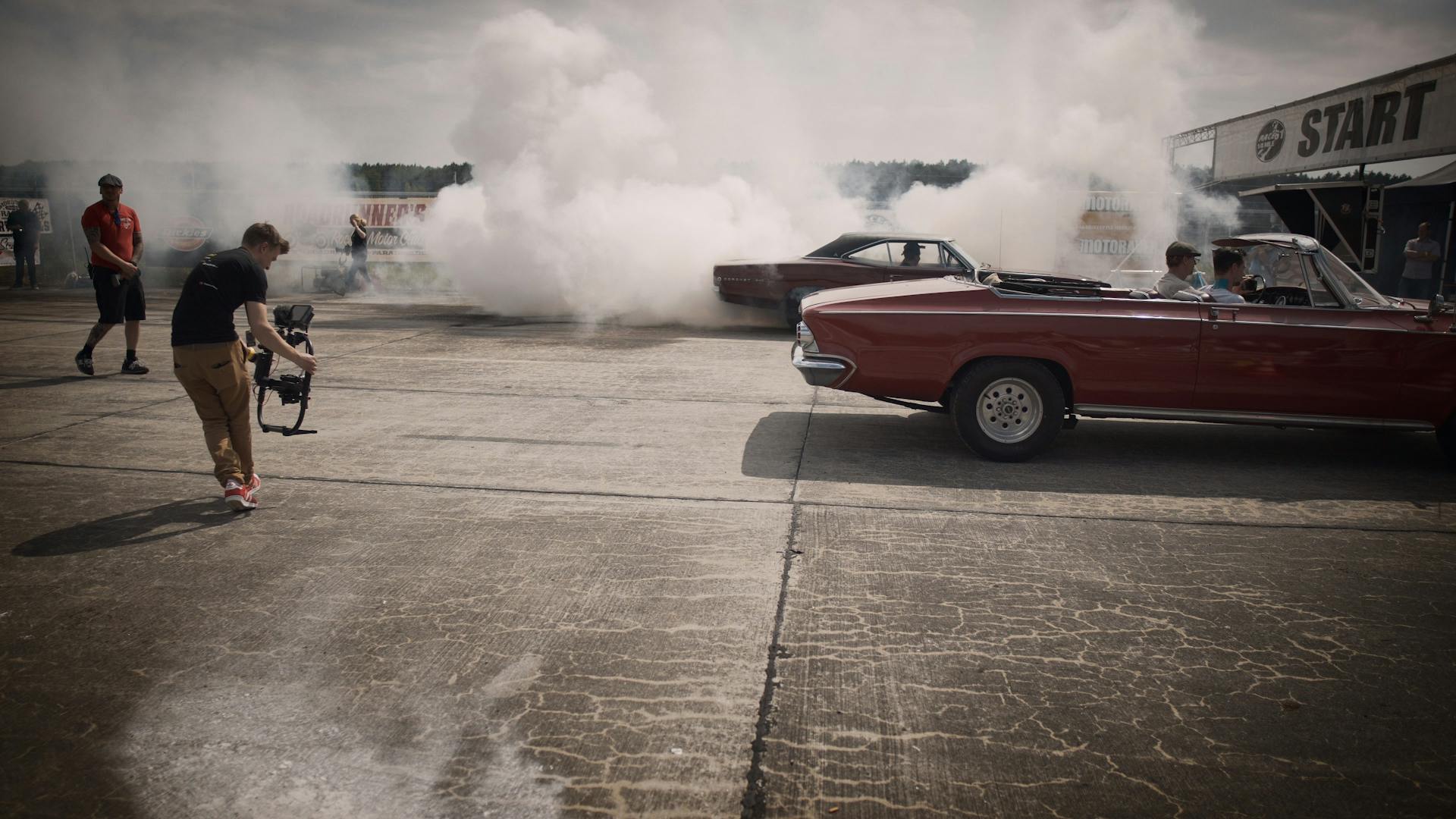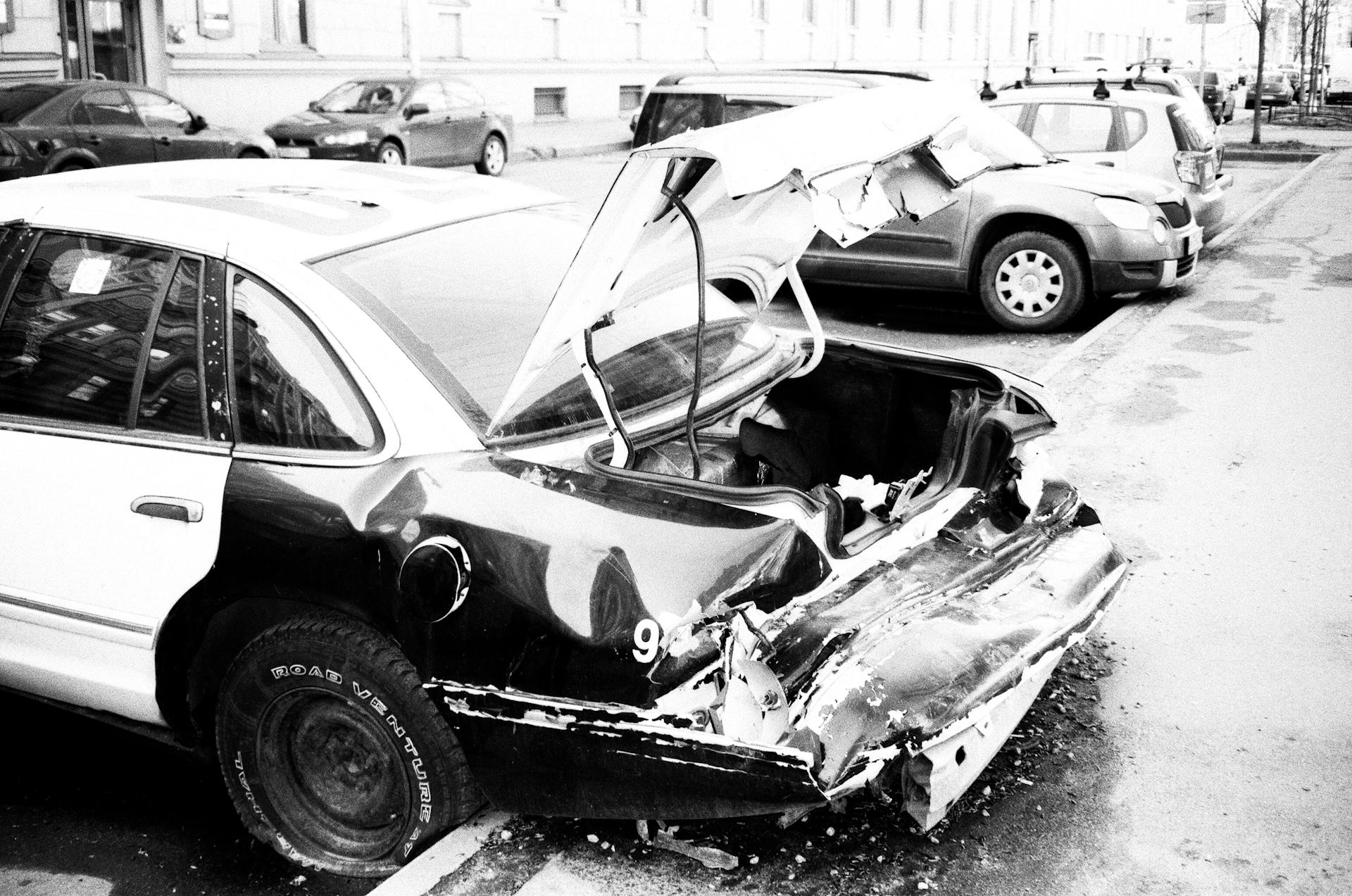
Collision coverage is a vital part of car insurance, but is it required by law? In most states, collision coverage is not mandatory, but your lender may require it if you have a car loan. If you're leasing a vehicle, collision coverage is usually a requirement of the lease agreement.
In some states, such as New Jersey and New York, you're required to have a certain level of insurance coverage, but collision coverage isn't specifically included. However, these states do require you to have liability coverage, which can help pay for damages to other people's property.
If you own your vehicle outright and don't have a loan or lease, you may be able to opt out of collision coverage. But before doing so, consider whether you can afford to pay for damages to your vehicle out of pocket.
Here's an interesting read: Housing Loan Requirements
Is Collision Coverage Required?
Collision coverage is not always required, but it's often necessary if you have a loan or lease on your car. Much like your car, collision coverage becomes less valuable over time, because it will never pay out more than the car’s value.
Intriguing read: California and Rental Car Insurance No Fault
If you don't have a loan or lease requiring it, collision insurance eventually loses its worth, costing more to have than it would pay you after a crash. You can use a calculator to determine if collision insurance is worth it for you.
To decide if collision insurance is worth it, consider your car's value. If your car is old or has low value, the cost of collision insurance might outweigh the benefits.
Discover more: Insurable Interest Auto Insurance
What Collision Coverage Covers
Collision coverage pays for damage to your vehicle that is the result of a collision, whether caused by you or by someone else. This type of insurance is not required by law, but most banks require you to carry it if your vehicle is being financed.
If your car is damaged but not totaled, collision insurance pays to repair your car to its previous condition, minus your deductible. If your car is totaled, collision insurance will pay the actual cash value of your vehicle, minus your deductible.
Here's a breakdown of what's covered under collision insurance:
What's Covered?
Collision insurance pays for damage to your own car from accidents, regardless of who's at fault. If your car is damaged but not totaled, collision insurance will pay to repair it to its previous condition, minus your deductible.
If your car is totaled, collision insurance will pay the actual cash value of your vehicle, minus your deductible. This can be a significant amount, especially if your car is newer or has a high value.
Here are some key things to know about what's covered under collision insurance:
- If your car is damaged but not totaled: Collision insurance pays to repair your car to its previous condition, minus your deductible.
- If your car is totaled: Collision insurance will pay the actual cash value of your vehicle, minus your deductible.
- If your car is totaled and you have a loan that's more than the value of your car, you'll still have to pay the remaining balance on your loan, which can be thousands of dollars.
Collision insurance can be a lifesaver if you're involved in an accident and your car is damaged or totaled. It's a type of insurance that's not required by law, but many banks require you to carry it if you're financing a car.
Coverage for Old Cars
If you're considering dropping collision coverage on your old car, it's essential to weigh the costs and benefits. More than 6 percent of people who have collision coverage file a claim, and the average claim amounts to $3,435.
The value of your car is a significant factor in deciding whether to keep collision coverage. Some people think to rely on the age of the car, but many makes and models can outlast the old benchmarks of 10 years and 100,000 miles.
Before making a decision, consider how much money you have on hand to cover repairs or replacement. If you had an accident tomorrow, could you come up with the funds to repair or replace your car? If not, it might be worth keeping collision coverage.
The cost of full coverage is another crucial factor. Take the cost of annual coverage and weigh it against your deductible and your car's value. At a certain point, you may find there's not much financial benefit to paying the additional costs of full coverage.
Here's an interesting read: Full Coverage Michigan Liability Auto
What Collision Coverage Doesn't Cover
Collision coverage is an essential part of auto insurance, but it's not a catch-all solution. Here's what it doesn't cover:
A different take: Where Is Ads B Out Required?
Collision insurance won't pay for damage to another person's vehicle or property, which should be covered by your liability policy. Theft, vandalism, hail, flooding, and wind damage are also not covered by collision insurance.
Some other scenarios that are not covered by collision insurance include damage from hitting an animal that ran into the road, and damage caused by a weather event. If your car is damaged but not totaled, collision insurance will pay to repair it to its previous condition, minus your deductible.
For more insights, see: What Is Collision Damage Waiver Coverage
What Doesn't Cover?
Collision coverage is designed to protect your vehicle from damage caused by accidents, but it's essential to understand what it doesn't cover.
Collision insurance won't pay for medical bills, whether they're yours, a passenger's, or another driver's. This is a separate aspect of car insurance, and you'll need to explore other options for covering medical expenses.
Damage to another person's vehicle or property is also not covered by collision insurance. This is typically covered by your liability policy, so make sure you understand the specifics of your coverage.
Collision insurance also won't cover damage caused by non-collision events, such as theft, vandalism, hail, flood, wind, or damage from a falling object. These types of damage are usually covered by comprehensive coverage.
Here are some specific examples of what collision insurance doesn't cover:
- Theft
- Vandalism
- Fire damage
- Hail damage
- Flood damage
- Wind damage or damage from a falling object
- Collision with an animal
- Damage caused to another person's vehicle in an accident
These are important things to keep in mind when purchasing or reviewing your car insurance policy. Make sure you understand what's covered and what's not, so you can make informed decisions about your coverage.
Comprehensive Coverage Explained
Comprehensive coverage usually covers passive events where the damage is done to the insured or their vehicle by something like extreme weather, a collision with an animal, vandalism or theft.
Comprehensive insurance pays for non-crash damage to your vehicle, such as fire, hail, or theft.
This type of coverage is often overlooked, but it's essential to consider, especially if you live in an area prone to natural disasters or have a vehicle that's susceptible to damage from animals.
For more insights, see: Comprehensive and Collision Coverage Covers:
The combination of collision and comprehensive insurance, combined with liability insurance, is typically referred to as full coverage car insurance.
Comprehensive coverage is not limited to just natural disasters, it also covers damage caused by vandalism or theft, which can be a significant concern for vehicle owners.
We used a 2021 Toyota Camry LE in all cases and assumed 12,000 annual miles driven, which is a good example of how comprehensive coverage can be a lifesaver in unexpected situations.
Collision Coverage and Other Policies
Collision coverage pays for damage to your vehicle that is the result of a collision, whether caused by you or by someone else.
Most banks require you to carry collision coverage for the duration of your loan if your vehicle is being financed.
Adding collision insurance to your policy may increase your premium, but it provides added protection and reduced risk.
Drivers of more expensive cars or ones that maintain value usually carry collision insurance to avoid paying out-of-pocket for substantial repairs.
Comprehensive insurance covers damage to your car that is not the result of a car accident, such as vandalism and theft.
Collision insurance pays for full expenses for damage to your vehicle if the vehicle is involved in an accident, regardless of who was at fault for the accident.
For another approach, see: Can I Add Collision Coverage after an Accident
Comprehensive vs. Full Coverage
Comprehensive insurance pays for non-crash damage to your vehicle, such as fire, hail, or theft.
Full coverage car insurance is typically the combination of collision and comprehensive insurance, combined with liability insurance. We used a 2021 Toyota Camry LE in all cases and assumed 12,000 annual miles driven.
Comprehensive insurance covers damage to your car that is not the result of a car accident, including vandalism and theft.
Collision insurance pays for full expenses for damage to your vehicle if the vehicle is involved in an accident with another vehicle or object, regardless of who was at fault for the accident.
The combination of collision and comprehensive insurance provides financial protection for your vehicle, covering a wide range of potential damages.
See what others are reading: When Is Ads B Required?
Comprehensive Compare to
Collision coverage pays for damage to your vehicle caused by a car accident, whether you're at fault or not. Collision insurance is often required by lenders if your vehicle is financed.
Comprehensive insurance, on the other hand, covers damages caused by events outside of your control, such as weather events, falling objects, vandalism, fire, and animals.
Here's a breakdown of the differences between comprehensive and collision insurance:
In summary, comprehensive insurance covers damages caused by events outside of your control, while collision insurance covers damages caused by car accidents.
Property Damage Liability
Property damage liability is a crucial aspect of motor vehicle insurance. It pays for damage to someone else's property following a motor vehicle accident.
In most cases, this coverage will cover the cost to repair someone else's vehicle. Colorado law requires every policy to carry a minimum limit of $15,000 per occurrence for property damage coverage.
Damage to physical property, such as fences, street lights, buildings, and utility poles, can also occur in accidents.
Sources
- https://www.nerdwallet.com/article/insurance/collision-insurance
- https://www.mapfreinsurance.com/blog/collision-coverage/
- https://kellerswan.com/blog/florida-collision-coverage-explained/
- https://www.erieinsurance.com/insurance-dictionary/collision-insurance
- https://donaldsonlaw.com/resources/insurance/auto-insurance-coverage/
Featured Images: pexels.com

